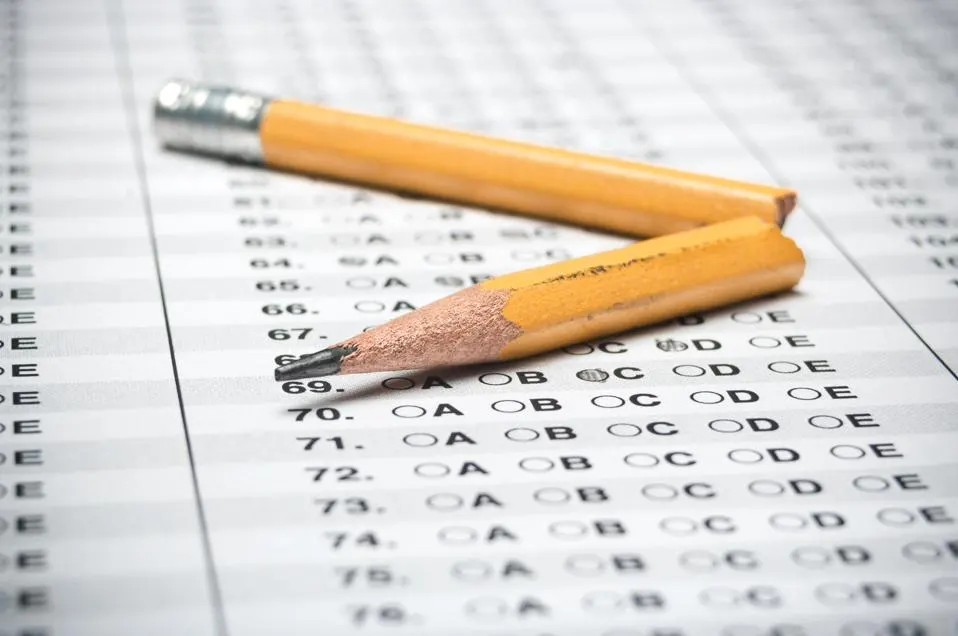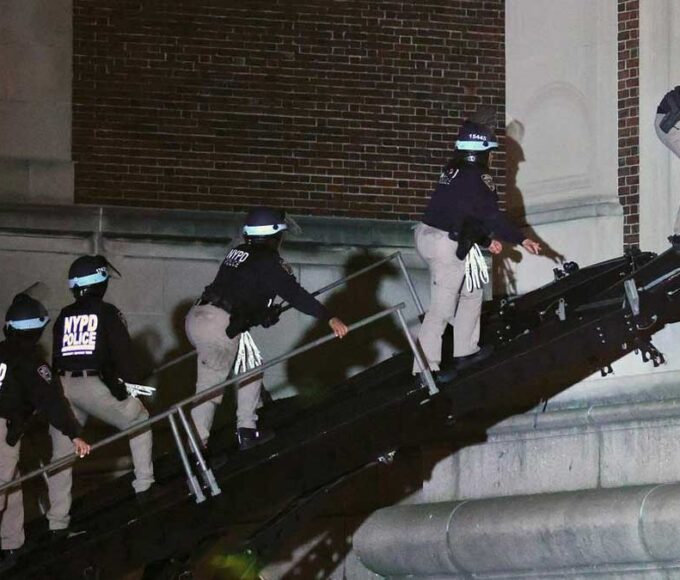- Home
- Billionaires
- Investing Newsletters
- 193CC 1000
- Article Layout 2
- Article Layout 3
- Article Layout 4
- Article Layout 5
- Article Layout 6
- Article Layout 7
- Article Layout 8
- Article Layout 9
- Article Layout 10
- Article Layout 11
- Article Layout 12
- Article Layout 13
- Article Layout 14
- Article Sidebar
- Post Format
- pages
- Archive Layouts
- Post Gallery
- Post Video Background
- Post Review
- Sponsored Post
- Leadership
- Business
- Money
- Small Business
- Innovation
- Shop
Recent Posts
Study: State Tests Measure Background, Not Learning

A groundbreaking study by Jamil Maroun and Christopher Tienken has unveiled startling revelations about the true essence of state standardized tests. Contrary to conventional belief, these tests don’t primarily measure student learning or teacher effectiveness. Instead, they serve as a reflection of the family and community capital that students possess.
Tienken, an associate professor of leadership, management, and policy at Seton Hall University, brings forth his extensive experience in education to shed light on this issue. Drawing from his previous research, he demonstrates how these tests are remarkably predictable based on demographic factors alone. Regardless of whether a school district is affluent or disadvantaged, one can accurately forecast the outcomes of these standardized tests using census data alone.
In their latest publication titled “The Pernicious Predictability of State-Mandated Tests of Academic Achievement in the United States,” Maroun and Tienken delve deeper into this phenomenon. Focusing specifically on standardized math tests in New Jersey, they uncover a consistent pattern where the socioeconomic background of students heavily influences their performance.
The crux of their argument lies in the concept of background knowledge. Students leverage their prior experiences and understanding to navigate through test questions and comprehend passages effectively. However, children from impoverished backgrounds often lack access to the diverse experiences that cultivate this background knowledge, putting them at a disadvantage compared to their more privileged peers.
Furthermore, the evolution of math tests to incorporate more reading-intensive questions exacerbates this issue. While students may grasp mathematical concepts proficiently, they struggle to comprehend the contextual elements of the questions themselves, resulting in lower scores.
This study challenges the conventional wisdom surrounding standardized testing. Instead of being an objective measure of academic achievement and teaching effectiveness, these tests inadvertently highlight disparities in socioeconomic backgrounds. Maroun and Tienken caution against overreliance on standardized test scores for making critical decisions in education, emphasizing the need for independent validation of these assessments.
Moreover, the research suggests a shift in focus towards providing students from less privileged backgrounds with broader and more enriching experiences. Rather than inundating them with test preparation exercises, initiatives aimed at building background knowledge could yield more significant improvements in their academic performance.
For over two decades, education policies centered around high-stakes testing have dominated educational discourse. However, this study serves as a wake-up call, urging policymakers to reconsider their approach. By acknowledging the limitations of standardized tests and prioritizing initiatives that address underlying socioeconomic disparities, the education system can move towards a more equitable and effective model of assessment.
In conclusion, Maroun and Tienken’s research underscores the need for a paradigm shift in educational assessment. Standardized tests, once hailed as the gold standard for evaluating student learning and teacher effectiveness, are revealed to be a reflection of broader societal inequities. As we navigate the complexities of educational policy, it’s imperative to heed the insights provided by this study and strive towards a more holistic and inclusive approach to education.
Recent Posts
Categories
- 193cc Digital Assets2
- 5G1
- Aerospace & Defense46
- AI37
- Arts3
- Banking & Insurance11
- Big Data3
- Billionaires426
- Boats & Planes1
- Business328
- Careers13
- Cars & Bikes76
- CEO Network1
- CFO Network17
- CHRO Network1
- CIO Network1
- Cloud10
- CMO Network18
- Commercial Real Estate7
- Consultant1
- Consumer Tech180
- CxO1
- Cybersecurity68
- Dining1
- Diversity, Equity & Inclusion4
- Education7
- Energy8
- Enterprise Tech29
- Events11
- Fintech1
- Food & Drink2
- Franchises1
- Freelance1
- Future Of Work2
- Games141
- GIG1
- Healthcare78
- Hollywood & Entertainment186
- Houses1
- Innovation42
- Investing2
- Investing Newsletters4
- Leadership65
- Lifestyle11
- Manufacturing1
- Markets20
- Media193
- Mobile phone1
- Money13
- Personal Finance2
- Policy567
- Real Estate1
- Research6
- Retail1
- Retirement1
- Small Business1
- SportsMoney33
- Style & Beauty1
- Success Income1
- Taxes2
- Travel10
- Uncategorized8
- Vices1
- Watches & Jewelry2
- world's billionaires395
Related Articles
ChatGPT’s Voice: Redefining Accessibility in Education
On October 4, I had the remarkable opportunity to join hundreds of...
By 193cc Agency CouncilOctober 5, 2024Protesters Walk Out of Seinfeld’s Duke Speech
During Duke University’s commencement ceremony, a group of approximately 40 students staged...
By 193cc Agency CouncilMay 13, 2024Columbia Cancels Graduation Amid Gaza Protests
Columbia University has decided to cancel its campus-wide graduation ceremony, originally scheduled...
By 193cc Agency CouncilMay 7, 2024Columbia President Defends NYPD Call, Moves Finals Online
Columbia University President Minouche Shafik’s recent statement regarding the campus protests and...
By 193cc Agency CouncilMay 2, 2024















Leave a comment